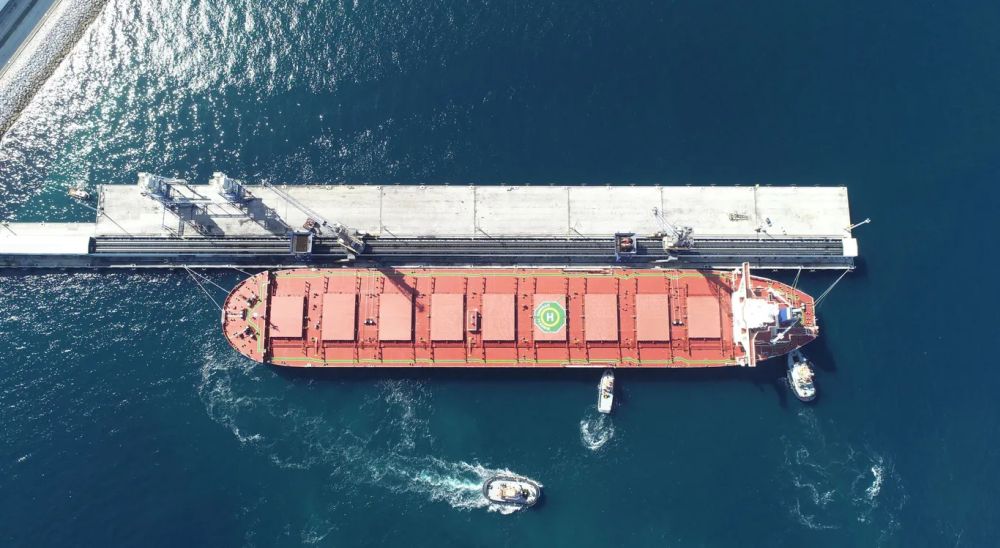Hydrogen Fuel Could Reduce Greenhouse Emissions in the Shipping Industry
The shipping industry is responsible for 3 percent of all greenhouse gases, and emissions are expected to grow by up to 50% by 2050 if the industry stays on its current carbon-spewing path. The experts believe that to keep the temperatures within safe limits, it will have to decarbonize. Establishing hydrogen as a green fuel for the shipping industry, The Compagnie Maritime Belge (CMB) – one of the oldest Antwerp ship-owners, has been building hydrogen-powered boats.

Hydroville is the world’s first hydrogen-powered passenger vessel | Image: CMB
The fuel being tested on Hydroville, a 16-passenger shuttle moving between Kruibeke and Antwerp, is hydrogen. Hydroville launched three years ago as the world’s first hydrogen-powered passenger vessel. Its hybrid engine permits it to function on both hydrogen and diesel. The company has been building other hydrogen-powered boats as well, including a larger, 80-person ferry in Japan that is scheduled to launch in early 2021.
According to Roy Campe, managing director at CMB.Tech, the R&D branch of CMB, Hydroville’s owner,
We decided for ourselves, look, we have to start with it today, even though there is no demand yet. We have to start today to make certain that within 10 years we can already start producing all our ships on a low-emission level. It’s not a light switch that you just flip over.
Diane Gilpin, the founder of the Smart Green Shipping Alliance, believes that the small boat sector is a great “providing ground” to enhance the clean technological solutions for large shipping containers to decrease carbon emissions. In 2018, various governments committed to cutting the shipping emissions in half by 2050; however, the industry has been rather slow so far to implement measures in reality.
Also Read: Wind-Powered Vessel Oceanbird Could Reduce Emissions to 90 Percent
With the growth of world trade, the shipping industry has been growing too; and as it takes a lot of energy for a ship to sail through open waters, the continued use of fossil fuels is not a wise move. To reduce emissions, some of this energy could be decreased through ships using more proficient designs, putting in technologies to harness wind, moving on a slower pace to conserve fuel, or simply carrying fewer things.
Green hydrogen can be really emission-free on a full lifecycle basis. That means from the point of where the fuel is extracted, or produced, until the point of combustion.
Says Marie Hubatova, a shipping emissions expert at the Environmental Defense Fund.
But eventually, the shipping industry is needed to find a replacement for fossil fuels. CMB’s hydrogen program is one of the numerous shipping ventures across the world analyzing how hydrogen and other fuels made from it, such as ammonia and methanol, could be used to power a low-carbon nautical industry in the future. These fuels, together often called “synthetic” fuels, are witnessed as a predominantly encouraging option as they can be made using clean electricity – such as solar or wind power – and burned without emanating any greenhouse gases.

The CMB has been building hydrogen-powered boats to reduce the emissions in shipping | Image: CMB
A study by the non-profit Global Maritime Forum (GMF), which surveyed about 66 projects working on achieving zero emissions in shipping, noted that 19 of the 21 initiatives relating to fuel production used hydrogen in some form. The majority of these expected using hydrogen to make other products, such as ammonia, methanol or ethanol, to enhance the viability of the projects.
Some people in the shipping industry remain skeptical about hydrogen being a safe power source for larger vessels carrying large amounts of fuel onboard. Kasper Søgaard, GMF head of research, said that the big challenge using hydrogen for deep seas shipping is the cargo volume, which would have to be reduced to store enough hydrogen fuel onboard to complete long voyages – and that could hurt the commercial aspects of the industry.


